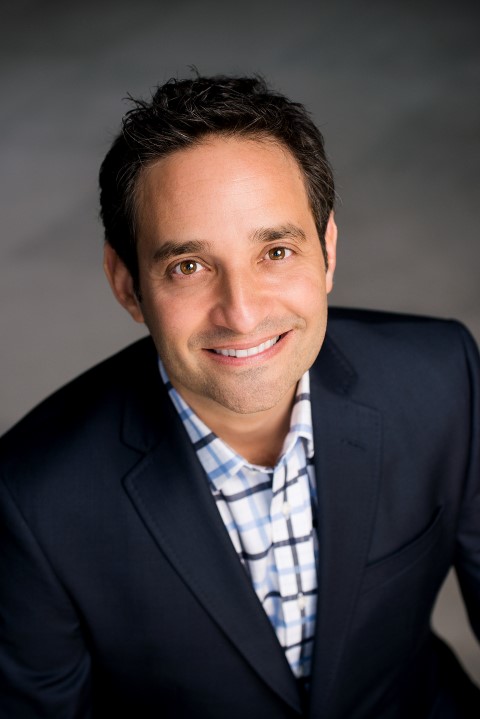In today's environment of rapid innovation and disruption, organizations of every size must be adaptable, nimble, and creative to thrive. While these qualities are more plentiful in the startup community, they are not always as closely associated with large organizations. Despite their scale and legacy, even the world's largest companies can harness the power of savvy entrepreneurial thinking, according to Josh Linkner, entrepreneur and New York Times best-selling book author. Linker presented his roadmap for corporate reinvention during a recent RBC Investor & Treasury Services forum.
Key insights
- Small startups are able to challenge and occasionally topple legacy incumbents with vastly greater resources by encouraging unconventional ideas, challenging the status quo and refusing to accept traditional barriers
- In order to adopt a startup mentality, mature businesses need to create an environment where employees feel that their leaders will entertain any potential solution or idea, no matter how bold
- Legacy organizations can adopt a startup mentality by considering their competitors' behaviours and ideas, and striving to embody and leverage those traits
“We live in a world of dizzying speed, exponential complexity and ruthless competition," he explained. “Today you need a whole new set of skills, and I truly believe the one thing that can't be outsourced or automated is the start-up way of thinking; that becomes our key to sustainable success, even in these challenging times."
Five lessons to adopt a startup mentality
Repositioning a mature business as a startup can be daunting. Linkner provides five lessons to help large organizations adopt an agile business mentality with examples from those who have proven success.
#1: Every barrier can be penetrated
Linkner explains that what often separates start-ups from legacy incumbents is persistence in the face of adversity. He explains that larger organizations must strive to foster an environment where no barrier to success is acceptable, and no potential solution is dismissed or discouraged.
Early in his start-up days as the founder and CEO of ePrize, the interactive promotion agency won a lucrative contract from United Airlines, who wanted to facilitate a worldwide million-dollar sweepstakes. As Linkner soon learned, however, both Australia and Brazil legally required such draws to be conducted on their own soil.
“The answer didn't come from me as the CEO, or anyone with a fancy title. In fact, it came from a contributor from my legal department," he said. “Her idea saved my company."
Ultimately the draw was completed at the Brazilian embassy in Australia, satisfying the legal requirements of both countries. “If we can create a safe environment and encourage ideas like that to come forward, we tap into this unbelievably powerful natural resource," said Linkner.
#2: Challenge legacy rules and traditions
During his presentation Linkner referred to the 1979 hit song Video Killed the Radio Star, famous for being the first music video to air on MTV, to explain how winning sometimes requires rewriting the rules or rebuilding the playing field.
As an example, Linkner pointed to a successful futuristic concept bike created by California-based manufacturer Specialized. Bound by the strict rules of the Union Cycliste Internationale (UCI), innovation in the industry is often discouraged in order to maintain a level playing field for all competitors.
A number of years ago Specialized decided to take each rule dictated by the UCI and 'flip it on its head'. For example, the rulebook requires both wheels to be uniform.Instead, the company made the back wheel bigger. The resulting concept bike, subtly titled fUCI, has been widely hailed as the concept bike of the future and successfully challenged the conventional wisdom of what a bike should be. “One by one they systematically defied each and every tradition, and ultimately yielded a better outcome," explained Linkner. “What would happen if you made a list like that? You might find that some of your traditions are keepers — so don't change just for the sake of it. But you might also find that by flipping them upside down you come up with a better result."

#3: Don't be a deer in the headlights
Linkner uses this analogy to explain how giving into the natural tendency to freeze up in difficult situations can often serve to be more dangerous than taking risk. “Too often we overestimate the risk of trying something new, but we underestimate the risk of standing still," he said.
Linkner references IdeaBank to demonstrate this point. Facing foreign competition in its own market, the Polish commercial bank realized many customers did not have time to stop at an ATM for their banking needs. To overcome this barrier the company modified an electric vehicle, effectively turning it into a mobile ATM, which can be summoned ondemand using a smartphone, similar to a ride-hailing application.
“For folks living in that little town in Poland, which bank do you think they'll want to go to?" asked Linkner. “Looking outside our field and borrowing an idea and bringing it back can be an incredibly powerful source of innovation, which is very much the startup mentality."
#4: Grit wins
How is it that small startups come to challenge and defeat giants that have significantly greater resources? Linkner believes the answer is grit, explaining that when an organization has little else, its human capital becomes its most powerful resource. “Their lack of internal resources can be a positive, because they need to hustle it out," he said.
Resource constraints can be a source of strength, said Linkner, pointing to Nigerian entrepreneur Jessica Matthews as an example. While studying at Harvard, Matthews returned to her native land for a wedding, where a power outage forced the use of backup gas generators. Later, Matthews watched a group of kids play soccer, and wondered if there was a way to harness their energy into a renewable source of power.
In 2008 Matthews invented Soccket, a regulation-sized soccer ball that generates and stores electricity as it rolls. She has since been named one of Fortune Magazine's Most Promising Women Entrepreneurs, recognized in Forbes '30 under 30' and appointed Nigeria's official Ambassador of Entrepreneurship.
“She had hardly any resources but still brought this idea to life," said Linkner. “She not only solved those business challenges with grit, but she solved the problem of renewable energy in third world countries that couldn't afford it, all by using creativity."
#5: Play up
Linkner's fifth and final recommendation is to imagine the person or company you wanted to be, and "play up," or act as if you were that person or company already. “Think about the organization that will put you out of business," he said. “And become that business."
Linkner explains that the effectiveness of this way of thinking has been proven by many individuals, including Coss Marte. When he was 23 years old, Marte was incarcerated for selling drugs and told by prison medical staff that he likely only had five years to live as a result of obesity and high cholesterol.
During his 10-year sentence, Marte developed a workout routine in his prison cell, lost 70 pounds, and began training other inmates. Upon gaining his freedom, Marte established a prison-themed gym on the very corner where he once sold drugs, and today his gym, ConBody, can also be found inside Saks 5th Avenue, among other locations. Meanwhile, Marte has become a highly sought after keynote speaker, is publishing a book in 2018 and is expected to release a documentary film in 2019.
“If Coss Marte can do that in his darkest hour, think about what we can do in our finest," said Linkner.
Though they typically lack resources, nimble startups can often challenge more mature businesses by looking beyond barriers, changing the rules of the game, dismissing convention, adapting quickly, visualizing desired outcomes and using plenty of grit to get there. As a result, larger organizations with superior resources can become virtually unstoppable by adopting and nurturing those same principles.
Source
- RBC Investor & Treasury Services' forum (September 6, 2017): Josh Linkner, “Leadership and the road to reinvention"

